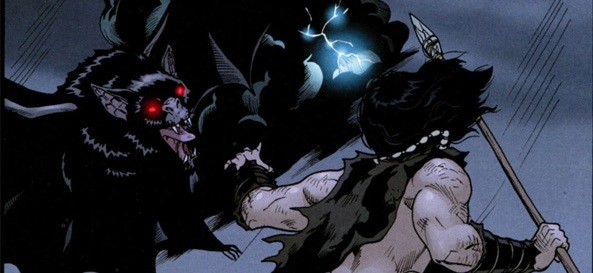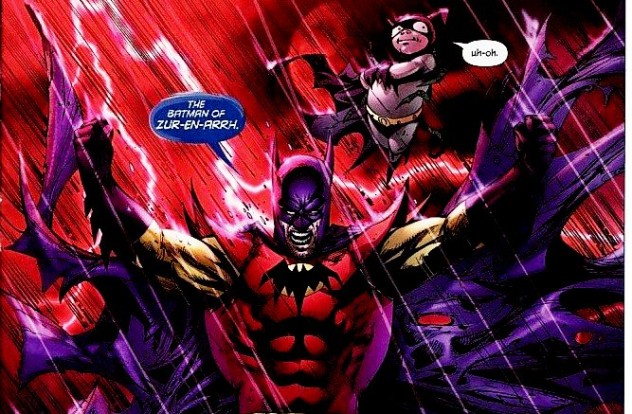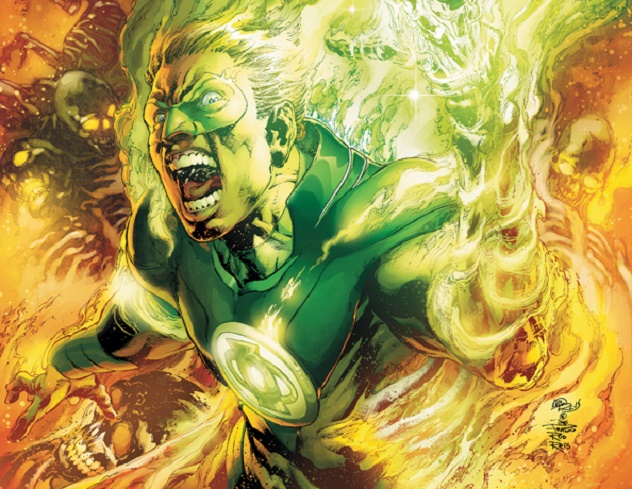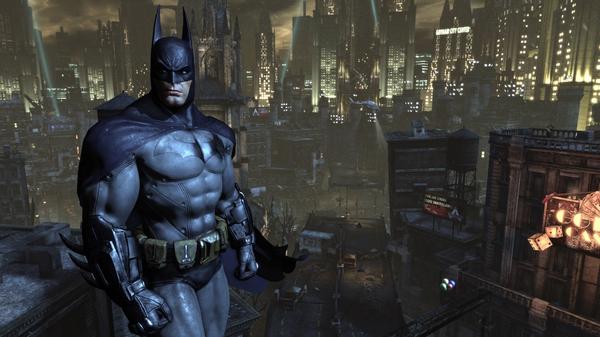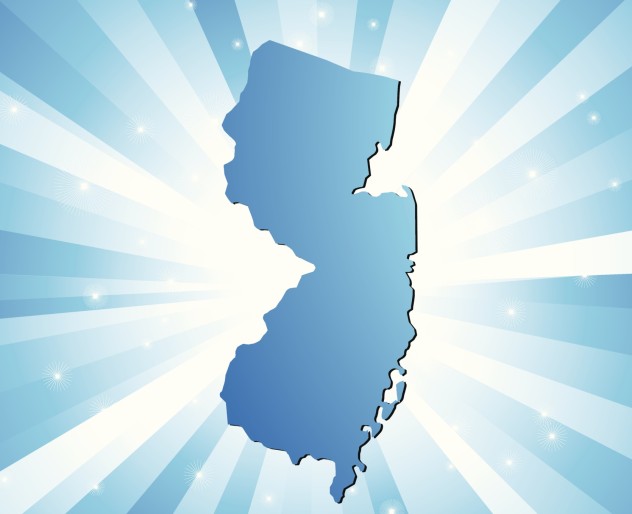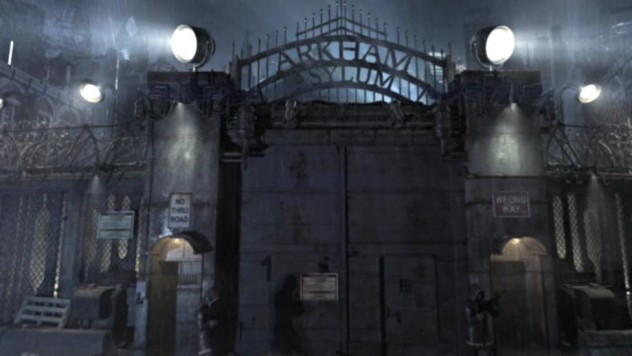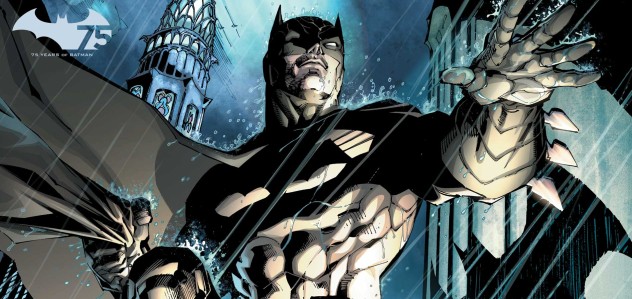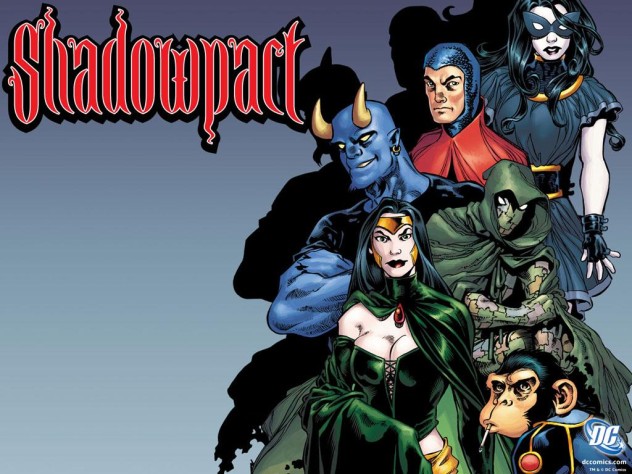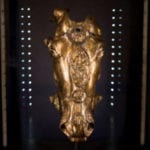10The Founding Fathers Summoned A Bat Demon In Gotham
Long-time bat fans know that Gotham City has been through much more than the average comic book town. Earthquakes, plagues, and a rotating door on the one asylum. Why, both Gotham’s citizens and Batman readers may wonder, is Gotham so messed up? Demons, of course! Well, one specific demon, summoned by no less than Thomas Jefferson. A bat-demon named Barbatos was summoned by Jefferson, an ancestor of Bruce Wayne, and other characters, and imprisoned beneath the city before the Revolutionary War ended. It is implied earlier in Batman’s mythology that the town having a literal foundation of evil affected the development of the town and its people, either causing or exacerbating some of the bizarre goings-on of the city. The real explanation provided by Grant Morrison is even more bizarre—the bat-demon was the manifestation of a time-jumping adaptive weapon sent to hunt and torture a time-jumping Bruce Wayne. This means that Batman inadvertently helped to create the demonic mythology of his own city.
9It Was Once Declared A ‘No Man’s Land’ By The Government
Many Batman fans are familiar with the Dark Knight Rises plot point of Bane cutting Gotham City off from the government by threatening to destroy the city if the government intervenes. To make good on his threat, Bane destroyed almost all bridges into the city. What kind of monster, viewers might think, would do this? In the Batman comics, it was the government itself that cut the city off. After Gotham experienced an earthquake that killed over a million people and destroyed or damaged most of the buildings, the citizens finally got the message the city had been trying to send for years: get out. With the city mostly empty and destroyed, the government destroyed Gotham’s bridges and declared it a no man’s land with one specific rule: Those with criminal records had to stay in the ruined city. This created an immediate problem as some were too poor or too stubborn to leave the city, and they were now effectively trapped with criminals. Commissioner Gordon and his men decided to stay and protect these citizens along with Batman. For their trouble, everyone who stayed in the city had their citizenship revoked by the government.
8It Is Implied That The City Was Designed To Produce A Batman
One of the more bizarre bat-moments from the already bizarre Batman was when the R.I.P. storyline included the revelation that Batman had a backup mental identity in the event that the original was compromised. That is, a brightly colored, slightly unhinged, and ultra-violent Batman known as The Batman of Zur-en-Arrh. Because it’s Batman, even the seemingly insane things about this Batman—such as conversations with a hallucination—lead to actual revelations, such as a hidden tracker inside Batman’s teeth. With this in mind, his conversation with some stone gargoyles was quite interesting. The gargoyles claimed to see with “slow vision” the grids of Gotham City as it grows, giving them insight into how the city shapes its people just as much as its people shape the city. By channeling this “slow vision,” Batman observes Gotham and says, “A checkerboard. A blueprint, A machine designed to make Batman.” This off-hand comment is explosively revelatory, implying that the city may have orchestrated the deaths of Thomas and Martha Wayne in order to create its future savior: Batman.
7It Was Rebuilt By Lex Luthor
“No man’s land” seemed to be the problem Gotham would never recover from. An earthquake massacre, a ruined city, mass evacuations, and federal abandonment seemed to be the perfect storm to destroy the city. It was saved by a very unlikely source: Lex Luthor. He spent oodles of his seemingly endless money in order to rebuild the city from the ground up. Interestingly, the government’s hands were tied. They had literally abandoned Gotham City, making the city itself outside of their jurisdiction. Therefore, America could not do much to stop Luthor helping out an embedded chunk of no-longer-America short of sending in the military—which would have been a public relations disaster for the president. Who wants to be seen as the president sending in tanks to stop a rich humanitarian from saving lives? So, Lex rebuilt the city, and the president gave in to public pressure and brought Gotham City back into the United States. As for Lex, it turned out to be part of a gamble to control almost all of the city through hard-to-trace fraud. Batman stopped Luthor, but only after the villainous mogul returned the city to its former majesty.
6Gotham Is Green Lantern’s City, Too
Gotham is understandably synonymous with Batman for many casual fans. However, Batman is not the only hero who has a decades-old claim on the city, as it was also home to Green Lantern. This was not the Green Lantern that many are familiar with—the space cop with a willpower-fueled ring—but instead his Golden Age predecessor, Alan Scott. This Lantern’s ring was quite literally a magic ring that was powered by a mystical force known as the Starheart. Despite this difference, his powers would be very familiar to modern-day Lantern fans. He can fly, emit bursts of energy, and create objects through both imagination and willpower. In some ways, he has a one-up on Hal Jordan and other future Green Lanterns with his magical abilities that help him cancel magic spells, pass through walls, and even teleport. Alan Scott originally lived in Gotham City and worked for the Gotham City Broadcasting company. He fought crime in the city as Green Lantern, and a young Bruce Wayne once saw him fighting the villain Icicle on Gotham’s streets, helping to inspire the future Batman.
5Gotham’s Government Makes Batman’s Life Easier
It’s tempting to completely turn off one’s incredulity when reading a Batman story. After all, after accepting that a story about a billionaire beating up the mentally ill is meant to be both noble and serious, it would seem easier to accept anything except, perhaps, this: Why are all of those rooftops free for Batman to skulk around on? Where are the garish advertisements and neon signs that litter the rooftops of every other major metropolis? Fortunately, the comics provide an answer for this question. In Dan Slott’s Arkham Asylum: Living Hell comic, he revealed that an Arkham inmate actually named Humpty Dumpty once attempted to fix the Gotham clock tower, causing a huge chain reaction that knocked down most of the giant and oversized advertisement props on Gotham’s rooftops. Afterward, Gotham passed the “Sprang Act” which forbade gigantic prop advertisements within the city. This is supposed to provide an explanation (albeit whimsical) for where all of the oversized props used by villains in the Golden and Silver Age went, and also to honor Batman penciller Dick Sprang.
4Gotham Is Actually In New Jersey?
Gotham is a city with multiple identities. It was originally New York City in the most literal sense—that is, the earliest Batman stories were set in New York City before “Gotham” was ever mentioned. The visual influence of an older New York is alive in both Burton’s Batman movies and Fox’s Gotham TV show. Christopher Nolan’s iconic Batman films are well-known for being filmed mostly in Chicago. However, the best case for the location of the comic book Gotham is, in fact, New Jersey. The most definitive “evidence” of this comes from a 1990 DC Comics role-playing book that provided a map of that universe’s America, and this map very clearly placed Gotham City in New Jersey. To be fair, it’s easy enough to dismiss a decades-old role-playing game book as non-canonical. However, Detective Comics No. 503 mentioned the infamous Jersey Shore as being only 20 miles north of Gotham, and Robin and Batgirl quickly went from being in the Bat Cave to driving on New Jersey’s Hudson County Highway. Finally, the Shadow of the Bat Annual from 1994 clearly shows a license plate that reads “Gotham City, NJ.”
3Arkham Asylum Was Once More Cheerful
Even the most casual bat fans have vivid images of Arkham Asylum as a place of gothic terror and madness where no one truly gets better. Interestingly, though, this was not always the case. The asylum was introduced in 1974 by Dennis O’Neil, and it originally accommodated the somewhat more playful tone of the Silver Age, allowing villains such as Joker to be treated for their mental health instead of being thrown in jail. However, as Batman’s stories grew darker, the asylum itself did as well. In many ways, the reputation of the asylum was cemented by the same book that cemented Grant Morrison’s comic book writing career. The book was Arkham Asylum: A Serious House on Serious Earth. While the narrative offered an eerie dreamscape of terror for Batman, it gave some downright frightening history for Arkham Asylum. Its founder, Amadeus Arkham, wanted to treat those who suffered from mental illness like his mother had. However, one of his original patients, a man named Martin “Mad Dog” Hawkins, escaped. He raped Arkham’s wife and killed both his wife and child. Martin was one of the first patients when Arkham Asylum officially opened. Amadeus insisted on treating him and “accidentally” killed him with voltage from an electric chair. Amadeus became more erratic and bloodthirsty, eventually becoming institutionalized in his own prison and creating the legend that he wanders the halls of the asylum to ensure that no one ever truly becomes well.
2Batman Controls The City’s Power
Another fact that literal-minded readers might have trouble reconciling is the idea of Batman’s status as an urban legend. After all, in a world so focused on surveillance, there should be webcam live streams every night of the Caped Crusader’s antics. So what gives? Batman, as it turns out, has extremely fine control of the city’s power. Specifically, he has special boxes hidden throughout the city that let him siphon power from the city and make other adjustments to protect his secrecy. With his trademark originality, Batman has named these his “bat-boxes.” They provide a canonical explanation for why the police or government officials haven’t long since tracked Batman back to stately Wayne manor. The boxes allow him to turn off cameras, disable tracking devices, and otherwise stay off the radar of any places he is currently occupying or plans to go to. Hence, the legend of Batman is maintained. Some people are convinced he is actually real, while others think he is just a boogeyman used by the police to scare criminals.
1Gotham City Is Magically Evil
One aspect of Gotham City that Batman describes frequently is the return to the idea of its constant evil. It is not a good city made bad at some point in the past. In fact, its rotten present state is considered a marked improvement over its immediate past, as Batman has helped drive out both major mob influence and a corrupt police influence. What then could be the source of the town’s evil? Aside from the aforementioned bat-demon is a more ancient explanation: an imprisoned warlock. The Shadowpact comic introduces the idea of a warlock who has been imprisoned and sleeping in a tomb in Gotham City for millennia for his evil deeds. When he is awakened, he makes the claim that the city’s growth and development has been somehow guided by his own evil essence and has given himself the name “Dr. Gotham.” The villains Pentacle and Strega wake Doctor Gotham to gain his help in taking over the world and, although he is stopped by the super group Shadowpact, his malevolent influence of Gotham City seems to live on. Send either “BAM!” or “POW!” to @PocketEpiphany
